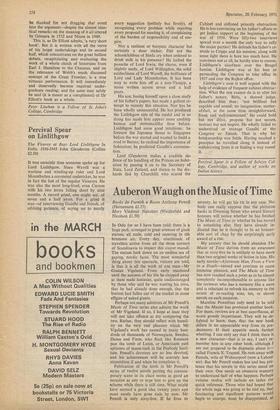Percival Spear on Linlithgow
It was certainly time someone spoke up for Lord Linlithgow. Since Wavell was a wartime and winding-up ruler and Lord Mountbatten a coroneted undertaker, he was in fact the last of the regular Viceroys. He was also the most long-lived, even Curzon with his two terms falling short by nine months. A record grind, one might say, of seven and a half years. For a grind it was—of interviewing Gandhi and Jinnah, of advising patience, of saying no to nearly every suggestion (politely but firmly), of recognising every problem while rejecting every proposal for meeting it, of complaining of the burden of responsibility and of em- pire.
Not a resilient or buoyant character but certainly a dour sticker. Did not the schoolchildren of Simla cry when ordered to drink milk in his presence? He lacked the panache of Lord Irwin, the charm, even if slightly seedy, of Lord Willingdon, the solid soldierliness of Lord Wavell, the brilliance of Lord and Lady Mountbatten. It has been easy to write him off as a non-Viceroy, a name written across seven and a half years.
His son, basing himself upon a close study of his father's papers, has made a gallant at- tempt to remedy this situation. Nor has he been wholly unsuccessful. He has produced the Linlithgow side of the medal and in so doing has made him appear more credibly human and statesmanlike than before. Linlithgow had some good intuitions: he foresaw the Japanese threat to Singapore before the war started and wanted to build a road to Burma; he realised the importance of federation; he predicted Gandhi's assassina- tion.
Lord Glendevon makes a credible de• fence of his handling of the Princes on feder- ation by passing it on to the Secretary of State, Lord Zetland, and thence to the die- hards (led by Churchill) who scared the Cabinet and stiffened princely obstruction. He is less convincing on his father's efforts to get Indian support at the beginning of the war of 1939. Were fifty-two interviews spread over a month the only way to rally the major parties? He defends his father's at- titude to Cripps and his mission; along with some light there is here too much heat. He convinces not at all, he hardly tries to excuse, Linlithgow's aloofness over the Bengal famine. Linlithgow was at his best in persuading the Congress to take office in 1937 and over the Rajkot affair.
Linlithgow's case is well argued with the help of evidence of frequent cabinet obstruc- tion. What the son cannot do is to alter his father's nature. Birla, a shrewd judge, described him thus : 'not brilliant but capable and sound; no imagination, matter- of-fact, at the same time straightforward, frank and well-intentioned.' He could hold but not drive, propose but not secure, instruct but not inspire. He wholly failed to understand or manage Gandhi or the Congress or Jinnah. That is why his brinkmanship was futile. Having reached a precipice he travelled along it instead of withdrawing from it or finding a way round it.
Percival Spear is a Fellow of Selwyn Col- lege, Cambridge, and author of works on Indian history


































 Previous page
Previous page